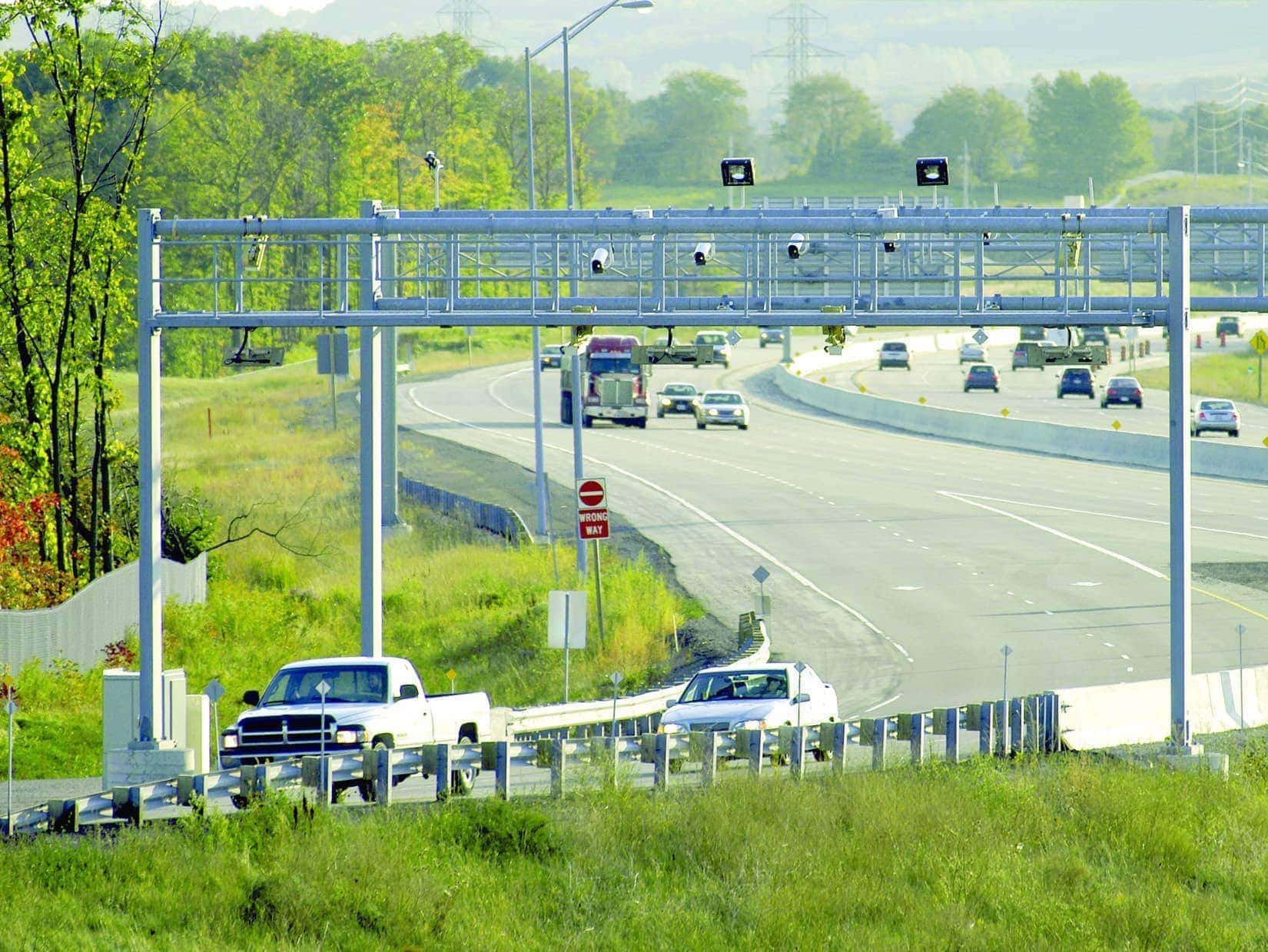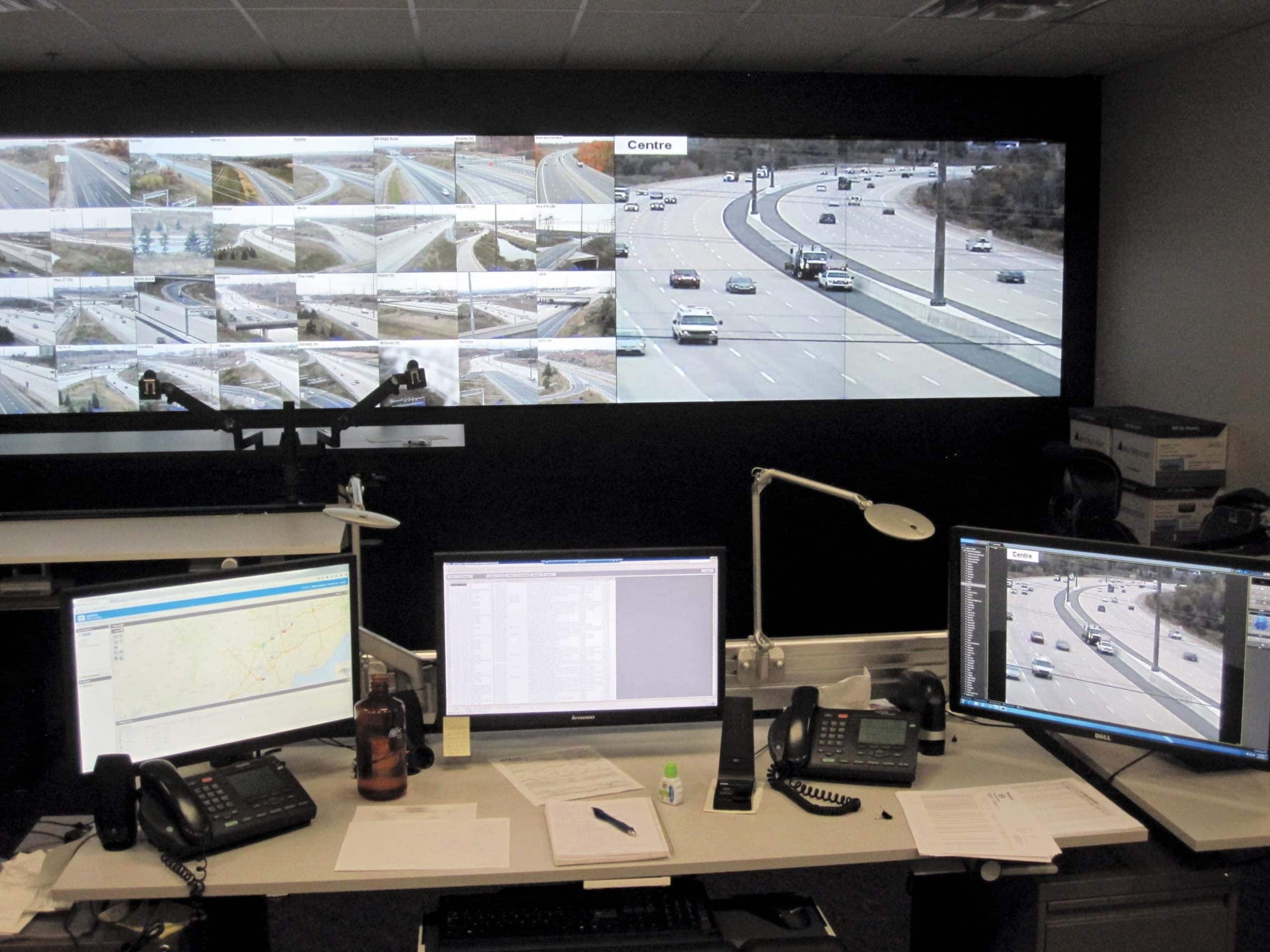
Snow storms, vehicle fires, empty gas tanks, flat tires. Helping police apprehend criminals and even rescuing ducklings, raccoons and the occasional stranded beaver – there is no such thing as a typical day in the control room at Highway 407 ETR.
Not everyone is cut out to work as a dispatcher on a major highway. It takes a particular type of person to be able to stay calm and focused in so many different high-pressure situations.
I’m the supervisor for a team of five emergency dispatchers. There are CCTV cameras all along the highway and our dispatchers in the control room are constantly scanning the bank of screens in front of them to spot issues even before they are reported. Being proactive is important to deescalate or resolve incidents as quickly and safely as possible.
The patrollers on the road are split up into three different zones during their shifts. As our dispatchers take calls, they send out the appropriate person or the closest unit right away – to remove something, assist, close a lane or do whatever is needed. Common reports we receive include debris or wildlife on the highway, collisions/rollovers and occasionally a spill of potentially dangerous, hazardous or environmentally sensitive material.

In the first 10 to 15 minutes of any serious incident, you can really see a situation unfolding. Phones are ringing off the hook and it can be chaotic. But the dispatchers do an incredible job of coordinating that chaos, making sure they are reacting and offering tangible, real-time information to many moving parts of a response, including emergency services, the Ministry of Transportation, traffic reporters and news outlets and even technology apps, like 407 ETR’s mobile app. We put information on our mobile app so our customers know what’s happening and which part of the road is affected.
Often our team takes calls directly from the emergency services or the media – they have a direct line to us to relay incidents that have been reported to them. As soon as our team gets a call, we log it in our digital system in as much detail as possible and deploy our patrollers as necessary.
My job as a supervisor is really to support the dispatchers on my team. So, if a major incident happens, I’m in it with them and helping them along the way.
When you have to manage something completely new
Every day brings something interesting. Very occasionally it’s something completely new that nobody has dealt with before – and you learn to deal with it on the fly. When it gets crazy out there, there’s an adrenaline rush like going on a roller coaster. But even if it is a really stressful day, talking together about it afterwards as a team can take away that stress. It’s much better than taking anything you’ve seen home with you and being upset about it.

Interestingly enough, one of our toughest challenges recently did not happen on the road. At the height of COVID last year, we had to work out how to best run the control room, while keeping our dispatchers safe. We set up remote locations at two additional buildings and tested work-from-home possibilities. We were able to set up some staff with the necessary equipment to be in their own home, while others worked at a different building in a new control room designed specifically for them.
We have also made changes to the control room in preparation for when the team fully returns after the pandemic – the way we use workstations and sanitize equipment, and so on. We will do all we can do to make sure our team stays happy and healthy.
As for me, I love being part of this team. Just to be able to see it all, keep it all together, everything running smoothly and having the right people in the right areas is a challenge. I like to see the teamwork between the patrollers on the road and the team in the control room. There’s nothing I’d rather be doing.





There are no comments yet